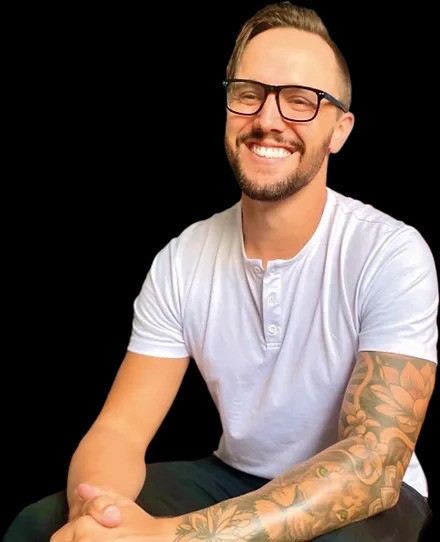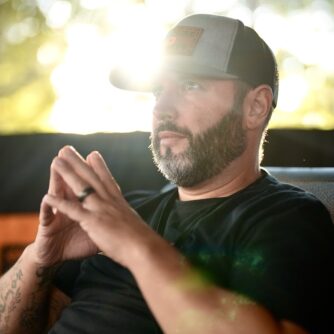This week’s episode features Dr. Justin Puder. Justin is a Licensed Psychologist and Therapist from South Florida.
Check out Justin’s Podcast: Welcome to Group Therapy
Check out the full interview to hear all about his social media presence and how he uses it to spread the word about mental health!
Social media’s impact on mental health is a complex issue, especially for influencers who rely on these platforms for their careers. While social media fosters connection and fuels creativity, it can also lead to anxiety, depression, and feelings of inadequacy. This text explores the challenges and strategies for influencers to navigate the online world while protecting their mental well-being.
Follow Justin on Instagram
The Dopamine Trap and the Power of Boundaries
The constant stream of likes, comments, and notifications creates a “dopamine trap,” triggering the brain’s reward system and encouraging compulsive scrolling. Setting boundaries, like turning off notifications, is crucial for regaining control and avoiding mindless engagement.
Focus on Creation, Not Validation
Successful influencers understand the importance of creating high-quality content consistently. Chasing validation through comments or arguments detracts from their passion for sharing ideas. Focusing on content creation aligns with the core purpose of influencer marketing and fosters a healthier mindset.

Follow Justin on TikTok
Embracing Imperfection and Unpredictability
Viral success rarely follows a formula. The key is to consistently create content you’re passionate about, even if it doesn’t receive the highest engagement. Accepting the unpredictable nature of online trends allows influencers to focus on their long-term goals.
Protecting Your Passion: Detaching from Negativity
Influencers are targets for online negativity. Developing resilience and separating personal value from online comments is essential. Remember, happy people don’t tear others down. Viewing negativity with compassion helps influencers avoid getting emotionally entangled.

Building a Support Network: Your Tribe
A strong support network of fellow creators can provide invaluable emotional support and professional advice. This “tribe” understands the unique challenges of influencer marketing and can offer insights from personal experience. Sharing experiences with others who “get it” fosters mental well-being and resilience.
Prioritizing Mental Health: Self-Fulfillment over Algorithms
Burnout is a common struggle. Focus on activities that bring joy and recharge your creative batteries, even if they seem unrelated to your content. Prioritizing personal fulfillment leads to more authentic and engaging content for your audience.
Diversification is Key: Platforms and Content
Social media algorithms constantly change, creating a never-ending chase for engagement. Diversifying content across platforms helps influencers maintain control and avoid burnout. Remember, social media platforms benefit from creators, so prioritize what fulfills you over chasing the “machine.”
Finding Balance: Personal Satisfaction and Platform Demands
Influencers, both new and experienced, should strive for a balance between platform demands and personal satisfaction. Dr. Justin Puder, a therapist and influencer, emphasizes the importance of mental health for everyone. His message, along with Danny’s (joking) consideration of starting a Twitch channel for cooking streams, exemplifies the need for creators to find fulfillment outside of traditional influencer marketing strategies.
Conclusion
Influencer marketing thrives on creativity and authenticity. By understanding the impact of social media on mental health and implementing these strategies, influencers can navigate the online world effectively, protecting their well-being and fostering a successful, fulfilling career.






